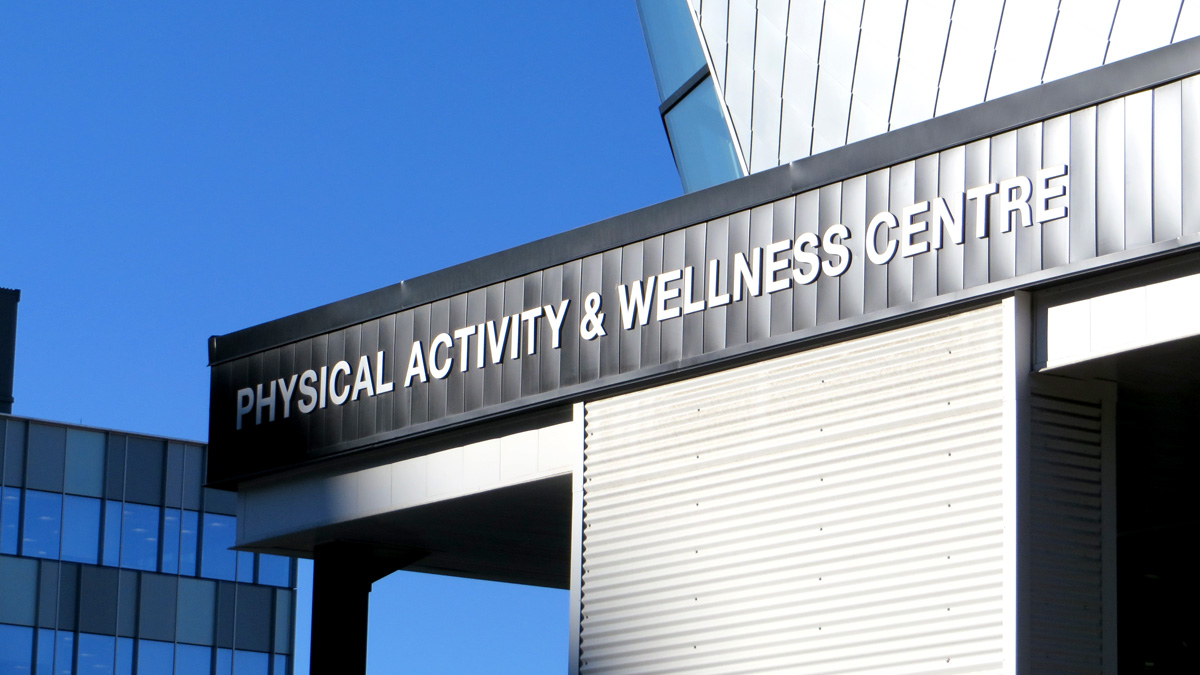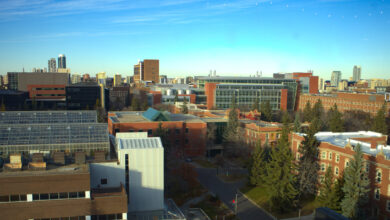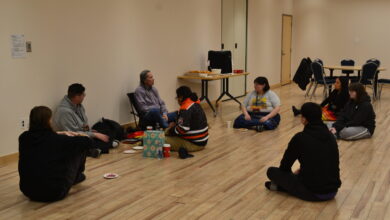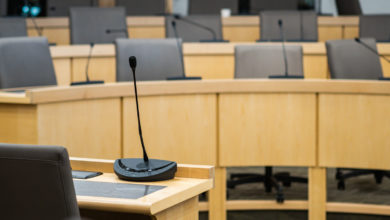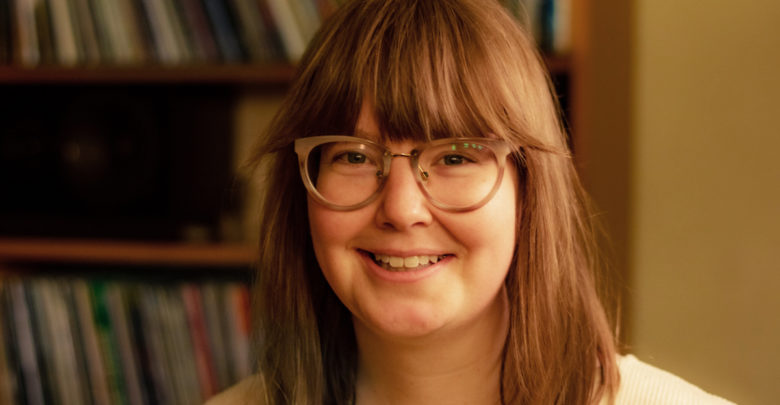 Supplied by Simon Gorsak
Supplied by Simon Gorsak What exactly is a Wikipedian-in-Residence? The Gateway sat down with the University of Alberta Libraries newest hire, resident Wikipedian Erin O’Neil, to answer this question.
O’Neil is a graduate student, studying in Digital Humanties. Located at the brand new Digital Scholarship Centre, her some of her roles as Wikipedian-in-Residence include helping students learn about the proper ways to use Wikipedia as an academic source, and showcasing how the platform may not be as inclusive as it could be. Other universities in Canada like Concordia University in Montreal and the University of Toronto have also begun to offer similar positions.
For O’Neil, the approach to being a Wikipedian-in-Residence is “two-pronged.”
“One (prong) is based around education because there are so many possibilities for integrating Wikipedia into pedagogy on campus,” O’Neil said. “And, the (second) is examining what the collections at the University of Alberta have to offer.”
O’Neil explained how she works to find ways that the U of A collections can “enhance” existing Wikipedia entries. Her work contributes to the overall “digitization” movement of significant documents to the web — an effort that makes the U of A collections more publicly-accessible.
She added how some of her time is spent on the educational side of her work: teaching about Wikipedia’s utility in the scholarly world.
O’Neil emphasized that students must learn to properly “assess the validity” of specific Wikipedia articles, but said that well-edited articles on the site are generally reliable and well-cited.
One problem O’Neil has with Wikipedia that she hopes to educate more at the U of A about is how an “overwhelming” majority of contributors were white men. However, Wikipedia itself has led some efforts to increase the diversity of its contributors.
“It’s getting better, but originally when more women became editors their entries were being [maliciously] reversed,” O’Neil explained. “But there are some really great efforts, including by Wikipedia itself, that show very little tolerance for that kind of behaviour.”
A Wikipedia edit-a-thon, such as the one O’Neil is hosting alongside the U of A Libraries on March 5, are examples of how Wikipedia is enhancing the range of voices contributing to its website. The specific event is “Arts and Feminism” focused, and she hopes to “show how easy it is” for anyone to contribute.
O’Neil highlighted how events such as these have led to some “feminist icons” getting their own Wikpedia pages. There will be several training sessions of varied length throughout the day to cater to any range of
time constraints.
Wikipedia’s academic utility has always been a controversial topic; when asked about this, O’Neil discussed how the nature of a publicly-edited platform only accessible via the internet results in the lack of certain narratives or voices being included. She gave the example that on the Edmonton Wikipedia page, there is “zero mention” of the effect colonialization had on the Cree people of the area. However, O’Neil highlighted that are many editors out there actively working to include these lost narratives.
“It’s sort of an empowering thing actually,” O’Neil explained. “Because you can go through and make changes, and if someone disagrees, you can have a back and forth: they learn something, you learn something, it’s great.”
Since the position is so new, O’Neil is looking for student feedback on how best to use her role to serve the U of A community. Despite this, she is “excited” to see what is in-store for her.
“Hopefully we will be doing some consultation and experiments to see how (we can) best serve the students on campus.”

